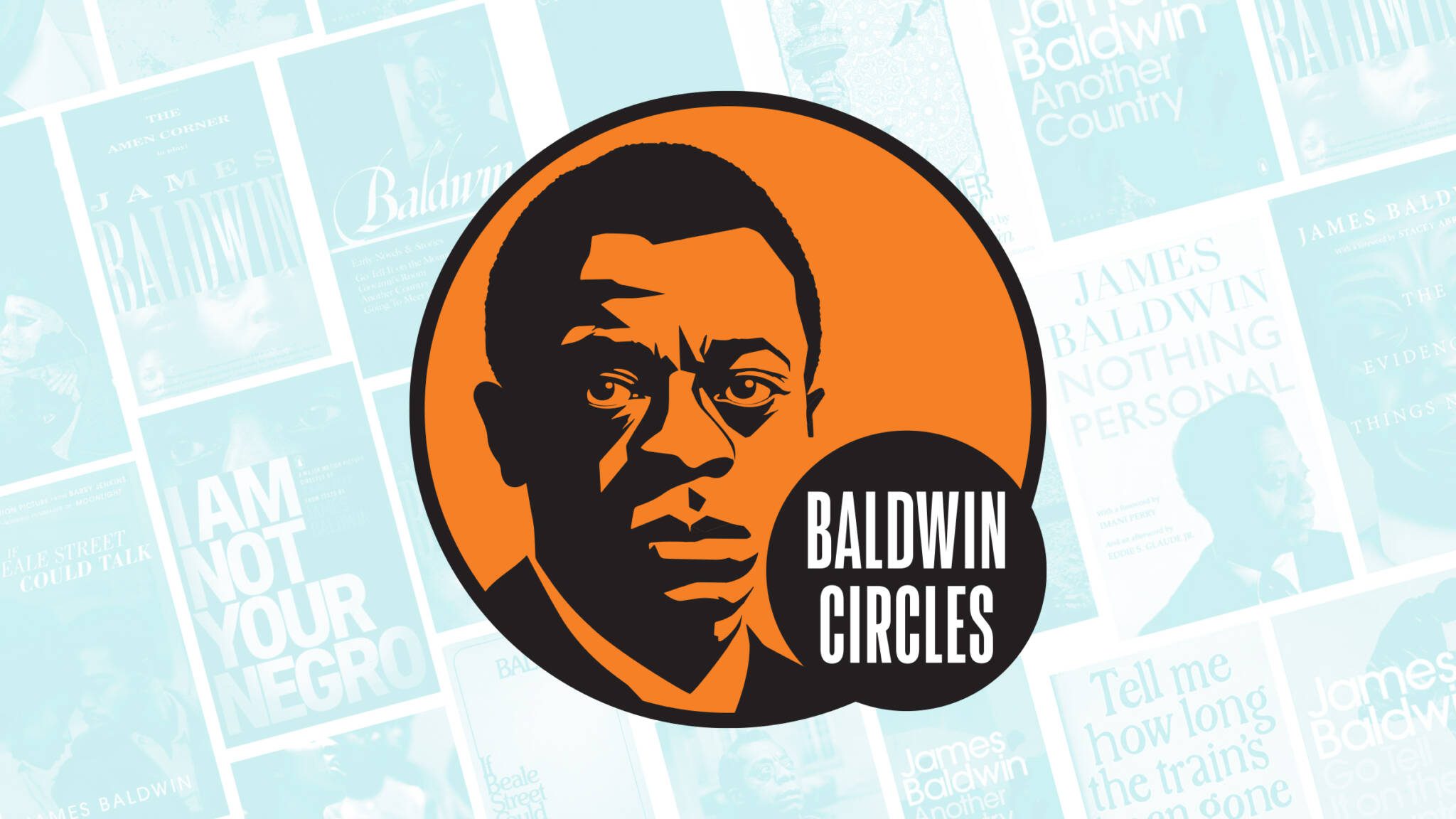A Cross-Disciplinary Celebration of James Baldwin’s Centenary
James Baldwin was born on August 2, 1924, at Harlem Hospital in New York City. During his lifetime and since his death in 1987, Baldwin’s life and works – novels, essays, reportage, plays, and more – have influenced generations of readers, artists, scholars, and activists.
To celebrate his 100th birthday, the Humanities Council is pleased to announce “Baldwin Circles,” a yearlong cross-disciplinary initiative, inviting the campus community to encounter Baldwin’s legacy in the intimate setting of a reading circle.
The Council will provide each Baldwin Circle with funds for books, meals, and refreshments during the 2024-25 academic year. Groups will come to their own consensus on what to read, in what sequence, and how often to meet. Each Baldwin Circle will:
- Comprise up to 6 people, one designated as the “convener”
- Involve members of at least 2 departments or offices
- Meet at least 2 times per semester in AY 2024-25
- Join in 1-2 larger-group receptions and lectures hosted by the Council during the year
Call for Conveners
If you are interested in convening a Baldwin Circle, please register a group by completing a brief registration form by September 15, 2024. No previous experience with Baldwin’s work is expected; this opportunity is open to everyone eager to read, ponder, and discuss Baldwin and his legacy in a communal setting. We invite groups to juxtapose Baldwin with other writers and/or to pursue his legacy in various formats and media; in short, we welcome you to think outside the box. The form will ask you to describe briefly your interest in leading a Baldwin Circle and what themes, genres, and materials your group may wish to discuss. The form will ask for a list of at least 2-3 additional committed participants.
If you would like to join a Circle but cannot commit to leading one, please email the Humanities Council to tell us a little about yourself, and we will offer space in a group if and when it becomes available.
Each reading circle will be listed on the Baldwin website. All reading group participants will receive copies of the Library of America edition of Baldwin’s Collected Essays.
About Baldwin Circles
The racial reckoning in the United States, in the wake of George Floyd’s death, has burnished James Baldwin’s reputation as a witness to his age. As a result, The Fire Next Time (1963), a pivotal text in the ongoing struggle for racial justice, has found a new generation of readers.
Capacious and incisive, by turns furious and vulnerable, Baldwin sounded his call for racial justice by exposing lies, skewering myths, and refusing consolations. His writings trace the rise and fall of his hope that the Civil Rights Movement would transform his country. Eventually, “the price of being American” cost Baldwin his desire to remain in this country, and his sojourns in France and later Turkey mapped a space of rest and restoration in which he wrote his indelible works: about slavery, Jim Crow and mass incarceration; about the cruel, ongoing devaluing of black lives; about the assassinations of Medgar Evers, Malcolm X and Martin Luther King; about Black Power and identity politics; about urban violence; about being gay and black; and about the ease with which the U.S. glided into the arms of Ronald Reagan. About hate; about love.
Ultimately he would lead a transatlantic life, a life he called “a choice of exiles.” While he invites a global perspective, Baldwin was also, for a time, a sojourner in New Jersey. As he wrote in Notes of a Native Son (1955), “I knew about jim-crow but I had never experienced it…” until he came, still a teenager, to work at a defense plant in nearby Belle Mead.
Baldwin’s works challenge what we think we know, and who we think we are; as Eddie Glaude Jr. writes in Begin Again (2020), “Baldwin never relinquished the belief that, at bottom, the problem we faced as individuals and as a nation was, and remains, fundamentally a moral one: it was and will always be a question about who we take ourselves to be.” Baldwin dwelled in possibility; but a mode of possibility that was rich, troubling, and complex.
The Humanities Council is excited to launch this campus-wide conversation, and we welcome you to Baldwin Circles.
Explore the Council’s Baldwin Circles website for more information. The site will be updated throughout the year with links to resources, local events, and projects of interest.
















